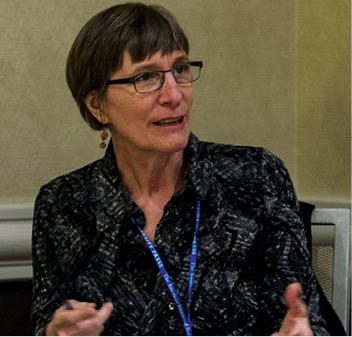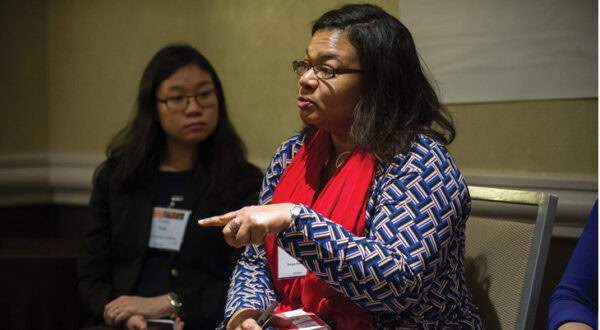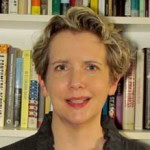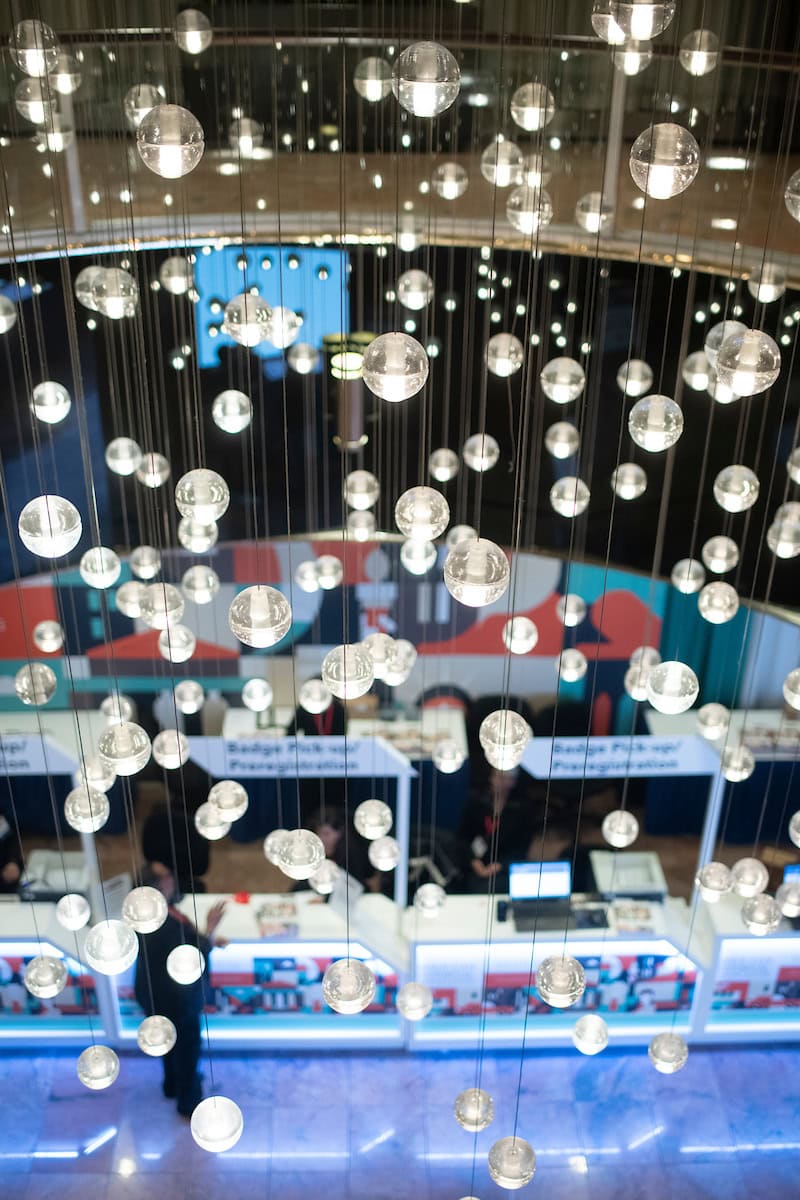The American Historical Association’s Committee on Women Historians (CWH) held its fourth annual brainstorming session at the 2015 annual meeting in New York. Participants broke up into small groups to discuss challenges facing women in the discipline, such as life-work balance, junior faculty concerns, career diversity, and mentoring. Topics were identified based on conversations at previous brainstorming sessions organized by the committee. More than 40 people joined in the lively and productive conversation.
Committee chair Maria Bucur (Indiana Univ.) led a conversation about life-work balance described in her article in this issue, “The Tightrope Called Academia: Women and Work-Life Balance.”

Credit: Marc Monaghan
Committee member Michelle Molina (Northwestern Univ.) facilitated a discussion of how the AHA can help junior faculty navigate the tenure and promotion process. Conversation touched on challenges facing women in particular and new faculty in general, such as how to focus on activities that will be most persuasive in securing tenure. Attendees suggested that it might be helpful for the AHA to craft a list of questions junior faculty should be asking in order to get an accurate understanding of expectations at their institutions. (See the AHA Professional Division’s September 2010 Perspectives on History article, “Planning Your Path to Tenure: What New Faculty Members Should Ask.”)
CWH member Aiala Levy (Univ. of Chicago) led a conversation about mentoring. Participants agreed that it is vital to have mentors at many different levels, from faculty advisers for intellectual support to peer networks for day-to-day advice. They also discussed the extra pressure many women historians face to provide mentoring and emotional support to students and colleagues. The group spent some time discussing how the AHA annual meeting might become a venue for fostering mentoring relationships, whether by establishing a formal system for linking mentors and mentees or by organizing a session analyzing the factors that contribute to a successful mentoring relationship.
A group led by committee member Karen Leathem (Louisiana State Museum) discussed career diversity and the career paths that led participants to employment in museums, professional associations, archives, and other sectors. Several participants were MA candidates considering the costs and benefits of pursuing a PhD.

Credit: Marc Monaghan
At the end of the session, participants suggested further topics for conversation, from the contingent workforce to retirement.
The Committee on Women Historians was established in 1971 to advocate for the interests of women in the historical profession and within the American Historical Association. Recently the committee has been working to refine its mission. Over the past 40 years, many gender inequities in our profession have been addressed, and the history of women, gender, and sexuality has become a well-established field of study. Yet challenges remain. As a participant in an earlier brainstorming session put it, the committee was formed to change the AHA, but its mission seems to be shifting to discussing how the AHA might help change the workplace.
The 2015 brainstorming session produced a number of ideas for future annual meeting sessions and other activities to address professional issues of concern to women. At each of the four brainstorming sessions organized by the committee, discussions about the particular challenges facing women historians led to conversations about broader trends affecting the discipline as a whole. The committee works with other AHA divisions and committees to help the Association support its members as they navigate their professional lives.
This work is licensed under a Creative Commons Attribution-NonCommercial-NoDerivatives 4.0 International License. Attribution must provide author name, article title, Perspectives on History, date of publication, and a link to this page. This license applies only to the article, not to text or images used here by permission.


